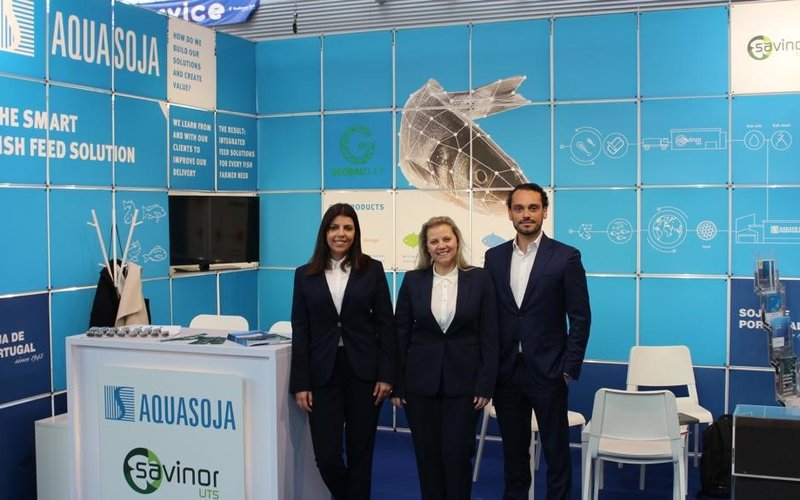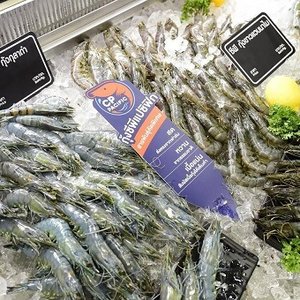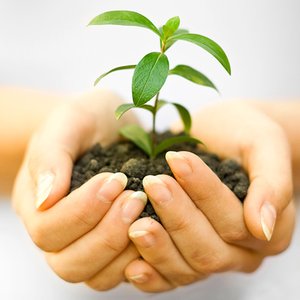Nuno Medina, commercial director of Aquasoja, a brand of the Soja de Portugal Group, recently participated in the II Aquaculture Congress of the Portuguese Association of Zootechnical Engineers (APEZ) where he explained the company's keys to the success in its international expansion. The company's nutritional options and its commitment to the circular economy and sustainability were also discussed.
Aquasoja works in two main areas. On one hand, the company manufactures conventional feeds to meet the nutritional needs of both freshwater and marine species throughout the life cycle. These are available according to the type of raw material: the Orange line contains ingredients of animal terrestrial origin while the Blue line contains only sustainable marine ingredients as the major sources of protein and energy.
On other hand, the company is strongly committed to functional feeds. “Our main purpose in this field has been to contribute to the reduction of the need for chemicals as a way of managing diseases. We aim to work on fish welfare, prevention strategies and natural products to help fish overcome different kinds of obstacles to, in the end, obtain a final product with healthy and safe characteristics for human consumption. In this sense, Aquasoja has launched in the past few years several functional products, with different targets, based on macro- and micro-ingredients with functional properties. Promoting the immunocompetence of the fish and maintaining good functioning of the gastrointestinal tract are always our main priorities,” Medina said.
Aquasoja has been going through a process of positioning itself in the international market thanks to the company’s knowledge of each market and its specificities. “It’s necessary to observe the specific needs, regulations and purchasing policies of each country. And many times, within the same country, all these variants change from customer to customer. So, the second step is to adapt to all these differences and present solutions that allow us to create value for our partners,” Medina stated.
The company is committed to sustainability. In 2012, the group created a Multidisciplinary Sustainability Commission, to innovate and do more with less, creating more value with less environmental impact. “We increase our effectiveness and efficiency by capitalizing synergies between Soja de Portugal’s business areas, such as the circularity of raw materials, the proper use of marine resources, the reuse of energy, the reduction of carbon emissions, the creation of new sources of income and the reduction of material waste, among others,” Medina said.
For example, the company uses circular raw materials and, in 2020, 78% of the ingredients used in the feed were byproducts and 56% of the materials used in fish feeds came from local markets. Aquasoja also invested in improving energy efficiency with the construction of thermoelectric plants to replace traditional fuel oil plants and in photovoltaic allowing to reduce the use of fossil fuels up to 15,000 tons. The company also built two new water treatment plants and reuse systems were adopted for non-operational activities, such as watering gardens or cleaning company streets.
“The different business areas of SOJA DE PORTUGAL operate in “perfect synergy”. The production of poultry meat is carried out in an integrated manner, getting advantage of the group’s own poultry production. The animals are slaughtered in our own slaughterhouses and the byproducts generated in the slaughter and cutting process are immediately processed at Savinor UTS to transform them into high-value ingredients for pet food and aquafeeds. Following our proximity to the Atlantic Ocean and the canning industry, we also do this process with fish, producing in-house high-quality sustainable fishmeal and fish oil, something that guarantees us traceability, quality and constant availability,” Medina concluded.













